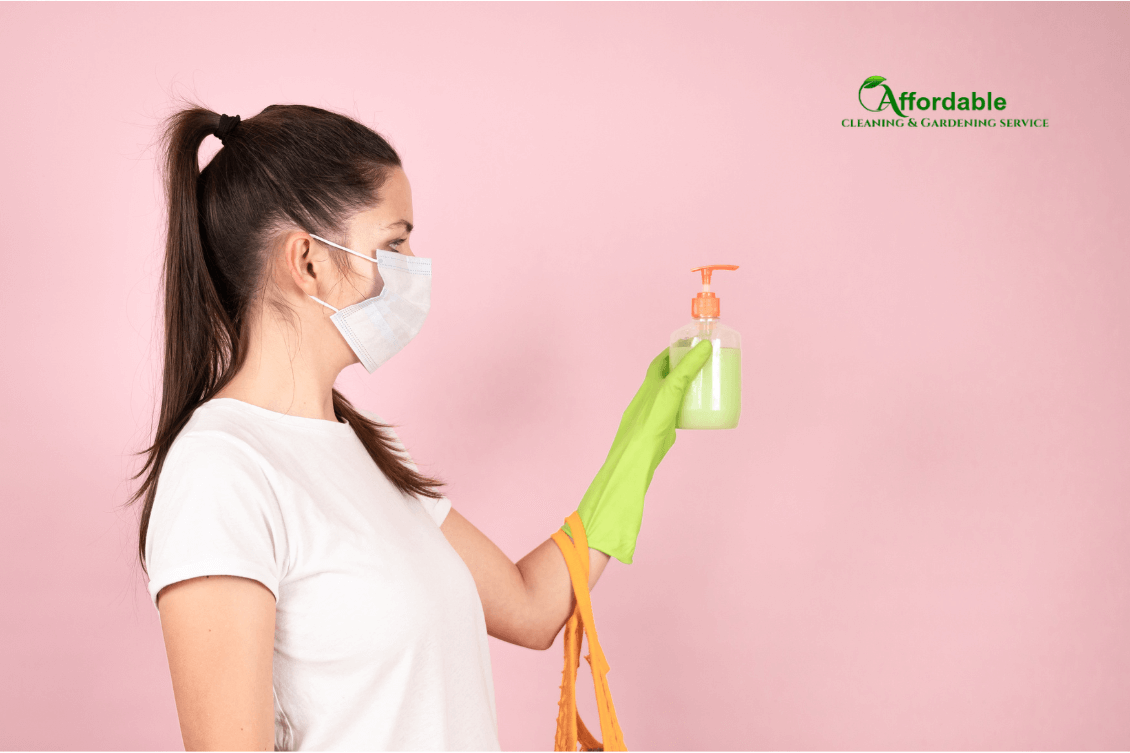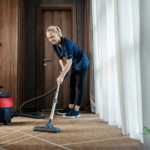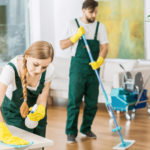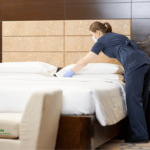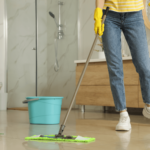Dealing with allergies and keeping your home clean can be a frustrating balancing act. However, with some smart cleaning techniques and products, you can help reduce allergens and irritants. This allows you to breathe easier in your own home in Paramatta, Western Sydney. Follow these 10 essential house cleaning tips to minimise allergic reactions from exposure to common allergens.
Tip 1: Use a HEPA Vacuum Cleaner
HEPA (high-efficiency particulate air) filter vacuums are critical for allergy sufferers. They capture 99.97% of particles 0.3 microns or larger. This includes pollen, pet dander, dust mites, mould spores, and other allergens.
When you are buying a vacuum cleaner, double-check and make sure whether it has a HEPA filter. Then you can get much-needed assistance to remove allergens occupying your living space. You can use your HEPA vacuum often on floors, furniture, curtains, and upholstered surfaces. By making it a habit to use the vacuum cleaner regularly, you can maintain overall indoor air quality.
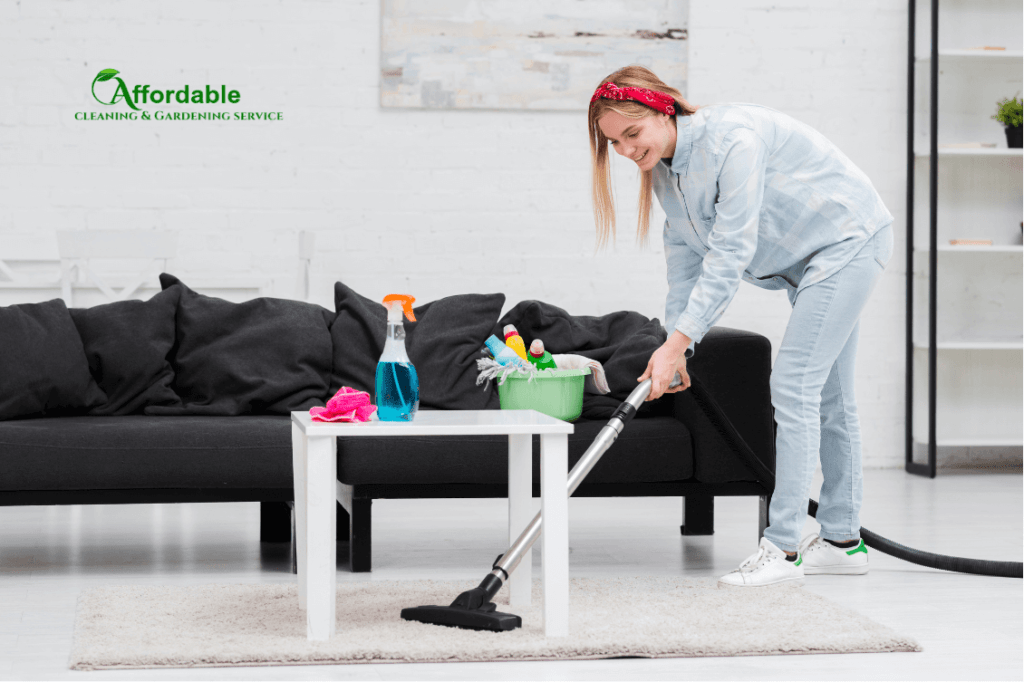
Tip 2: Wash Bedding Weekly
Dust mites thrive in bedding. This is the main reason why you need to make it a habit to wash bedding every single day. Make sure to wash sheets and pillowcases in hot water once a week. Along with that, you can also wash blankets, mattress pads, and bed covers. This kills them and gets rid of their allergens.
You may also use hypoallergenic covers and pillows as an additional barrier. That’s because dust mites can’t survive on hypoallergenic surfaces. By using them, you will be able to reduce the frequency with which you wash bedding.
Tip 3: Control Mold and Mildew
Mold and mildew release spores that cause allergic reactions. This is why you should get rid of them to allergy-proof your home. The presence of moisture is the main reason why mould and mildew are present in your living space. Hence, you need to take appropriate measures to overcome the root cause.
For example, if there are any leaks, you need to go ahead and fix them. You can also think about using mold-killing cleaners. Along with that, you can also increase ventilation. This will reduce the possibility of mould growing. In addition, you may also dehumidify the air. If there are any materials with mould, you need to discard them immediately.
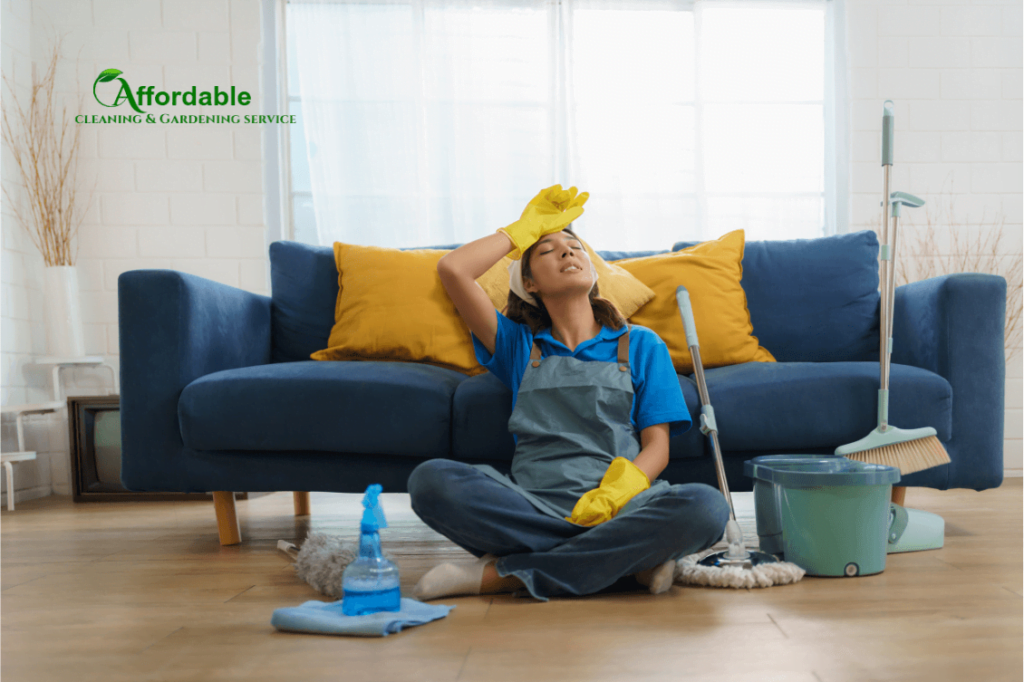
Tip 4: Clean Floors Regularly
Carpets and floors collect dirt, pollen, pet dander and other allergens. This is why you need to make it a habit to clean floors regularly. Vacuum carpets and sweep and mop tile or wood floors often. Use a microfiber mop and vacuum with HEPA filters. Minimise fabrics and rugs to reduce allergen traps.
Regular cleaning is essential, but you should also think about going for a deep clean once in a while. Then you can clean the areas that are usually neglected during regular cleaning activities. Deep cleaning techniques are highly effective when you try to fight against allergens. It will also help you to keep your home fresh.
Tip 5: Dust Properly
Dusting stirs up allergens. However, most people don’t have a clear idea of how they need to dust the surfaces at home. For that, you should purchase appropriate equipment. Among different products available to dust, microfiber clothes hold a prominent place.
Use microfiber cloths to trap and remove allergens instead of just spreading them around. Perform focused dusting to target commonly missed spots. And wear a mask while dusting to avoid breathing allergens.
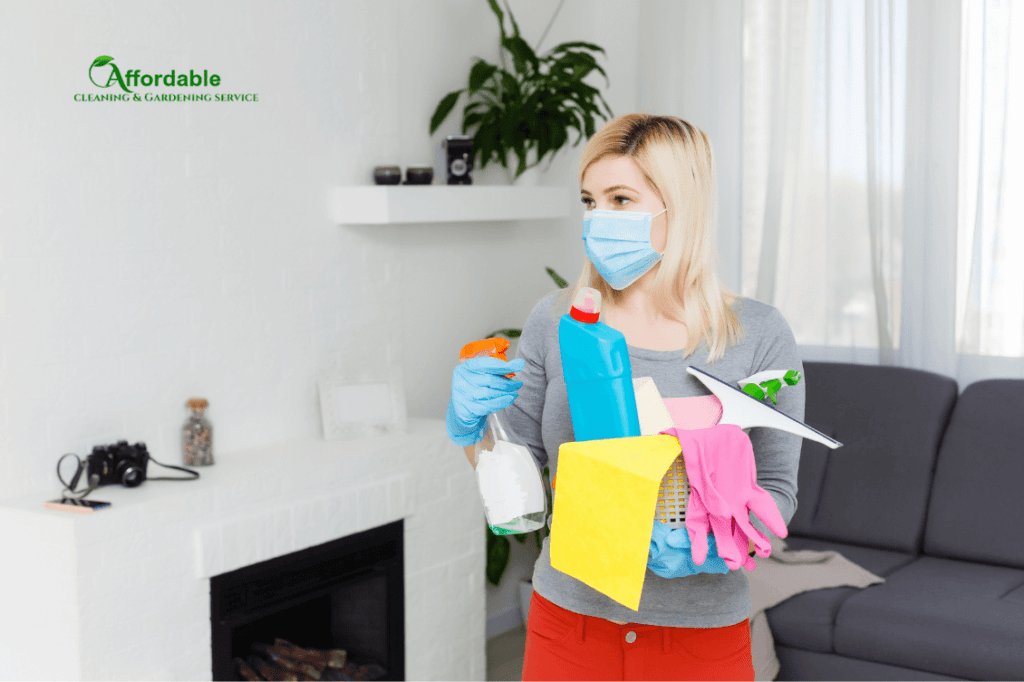
Tip 6: Limit Fabric Surfaces
Upholstered furniture, stuffed toys, curtains, and fabric blinds are magnets for dust and allergens. Limiting them minimises what collect in your home. You need to pay special attention to this when you have pts at home. That’s because pet dander can easily accumulate in upholstered furniture. This can eventually trigger respiratory health problems such as asthma.
By limiting upholstered furniture, you need to look at the alternative options available. Use leather, wood, and plastic furnishings instead. You may also install hard blinds or cellular shades. This can also help you prevent other allergens such as pollen from getting trapped.
Tip 7: Clean Air Ducts Periodically
Air heating and cooling systems circulate dust and other allergens. This is why you should hire professionals to deep clean ductwork every 3 to 5 years. Similarly, you should also change furnace filters monthly. It would be a good idea to go ahead with installing HEPA air purifiers. This is something that people who struggle with allergic reactions such as sneezing and itchy eyes can do. HEPA air purifiers can help you to stay away from allergic reactions quite effectively.
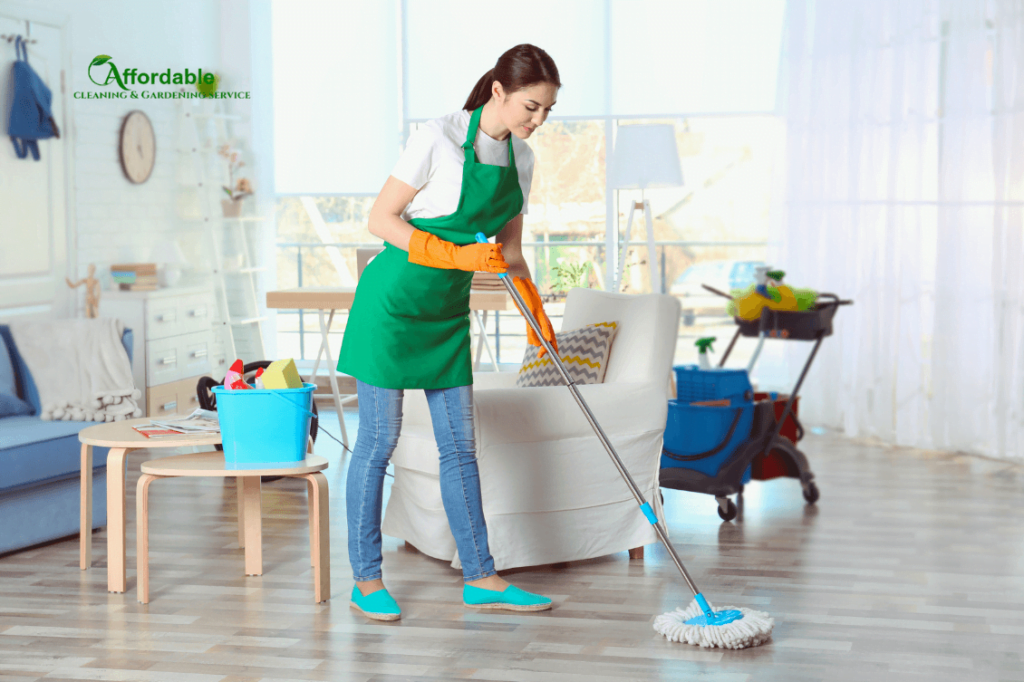
Tip 8: Purge Clutter
Clutter makes cleaning difficult and gives allergens places to hide and build up. This is where you need to reduce clutter, especially in bedrooms. To reduce clutter, you can start using baskets, shelves, and storage containers. In addition, it is important to stash clutter in closets and drawers, so counters and floors stay clean.
Before you bring anything inside indoors, you need to think whether you really need it or not. Then you can stay away from getting clutter inside the house. Always live a simple lifestyle and it will ease everything you do. On top of that, you can also improve your overall health.
Tip 9: Use Gentler, Safer Cleaners
Harsh chemicals irritate airways that are already sensitive to allergies. You can minimise this by using natural cleaning products. Or else, you may choose gentler formulas with safer ingredients. Make sure to always air out and ventilate after using any cleaner.
While you are cleaning the surfaces at home, you will disrupt the surfaces with dust and other pollutants. It is better to wear a face mask when you are using cleaners. It is one of the most effective strategies to keep yourself safe from dust.
Tip 10: Bathe Pets Regularly
Homeowners who have pets will have to struggle in order to stay safe from allergies. That’s because animal dander and skin flakes from pets trigger allergic reactions. However, some lifestyle changes can help you to reduce the struggles that you face.
For example, you can bathe dogs, cats, and other furry friends often. This will wash away allergens clinging to their coat and skin. Doing so prevents them from spreading throughout your home. If you or any of your family members are struggling with respiratory health issues, it is better to think twice before you get any pets. Prevention is always better than cure.
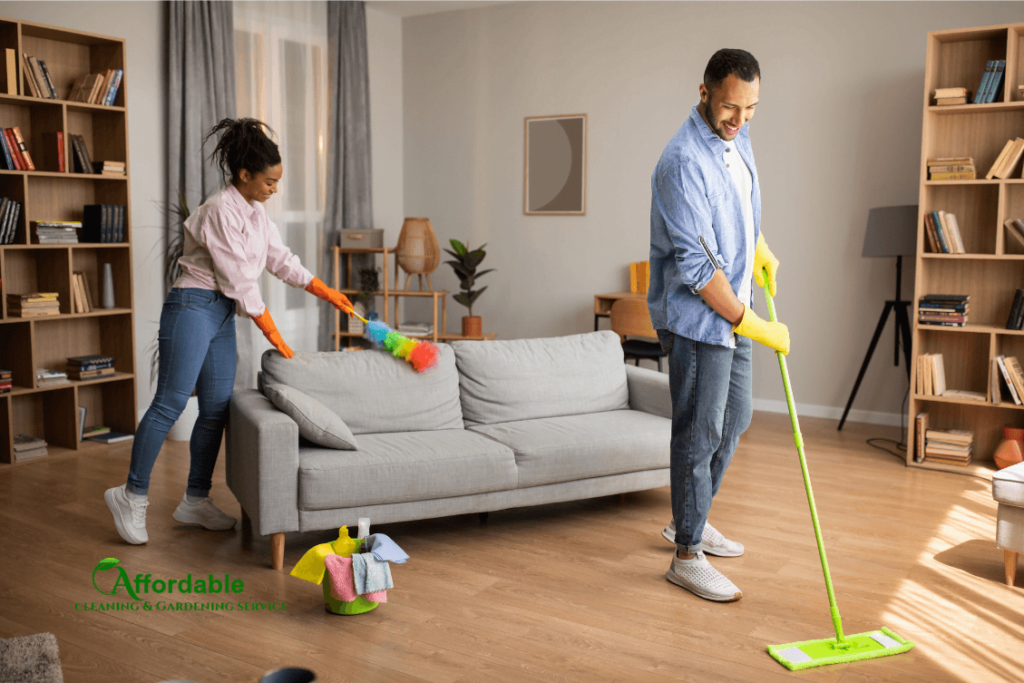
Final Words
Implementing these cleaning tips for allergy sufferers reduces exposure to common allergens like pollen, pet dander and dust mites. They keep your living space cleaner with fewer irritants polluting indoor air. Follow them to alleviate allergy and asthma symptoms so you can breathe easier at home. With some diligence about home cleaning, you can minimise sneezing, watery eyes and other miserable allergic reactions.
With your busy schedule, attending to these tasks can be challenging. Sometimes, removing mould from hidden areas would also be difficult. On the other hand, you will face struggles with deep cleaning the surfaces. That’s where expert help can save you. If you are searching for such a professional cleaning service in Paramatta, feel free to contact Affordable Cleaning and Gardening Services.
We provide customised and effective cleaning solutions for any allergy sufferer out there. By following a cleaning checklist, we take appropriate techniques to remove allergens from the living space. We will also help you to control them in future. Simply connect with us today to get our services.

